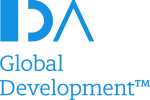Tanzania – Where-to from now?
In 2014 it will be 50 years since the United Republic of Tanzania was created from Tanganyika and Zanzibar; and in 2015, it will be 30 years since the Union’s first President J. Nyerere stepped down. In the 50 years, Tanzania has moved from African socialism to African market economy and has received the largest amount of Danish development assistance of any country. Many Danes have over the years worked in Tanzania, sharing the values that have guided Tanzania’s development since the early days – but also sharing some of the frustrations when progress did not happen as planned.
While Tanzania has done comparatively well on some key development indicators, e.g., the Human Development Index, there are also concerns that values, such as civil rights, equity and sustainability might be sacrificed for economic growth; and that all targets for Millennium Development Goals (MDG) 1 and 5 and two out of three for MDG 7 are considered not achievable by the government[1]. Questions that could be asked at this point include:
- Why has there not been more impact of the development assistance over the years, including the DKK 14 billion provided by Denmark? What has been done wrongly? Should we continue in the same way? Is development assistance in itself part of the problem?
- Despite the long and close relations between Denmark and Tanzania, the Danish commercial volume and market-share in the country’s growing economy remain small. Do we need new instruments?
- How does Denmark, including Danish development assistance position itself in the context of the wind-fall of revenues expected in the coming years from oil, gas, minerals, large-scale commercial agriculture, etc.?
It is timely to ask such questions. On the 25th of October, the new Danish country policy for Tanzania is presented to the Development Policy Council (Udviklingspolitisk råd). Thereafter, the work to prepare the new country programme (DKK 2 billion) will start in order for it to be completed before the end of 2014.
The Danish Society for International Development will take the temperature of the country, the prospects and opportunities looking at the situation from four angles: (1) budget support and policy dialogue; (2) earmarked development assistance, investments and commercial interests; (3) social and political development trends; and finally (4) the business environment for private Danish firms to establish and operate in the country.
Presenters and discussants
- Andrew Lawson, who led the recent independent joint evaluation of budget support to Tanzania 2005/06 – 2011/12[2].
- Ben Taylor, a Tanzanian Blogger[3] and Open Development Consultant with Twaweza[4], an independent East African NGO
- Johnny Flentø, the Danish Ambassador to Tanzania who recently wrote an article in “Altinget” on the topic[5]
- Ole Hoffmann Hansen, CEO and owner of UniCool, a Danish company that has successfully established in Tanzania[6]
The meeting will take place on 12 November from 17:00 to 21:00 in Ingeniørhuset at Kalvebod Brygge, København K with subject presentations in each of the above areas, Q&A and structured discussions.
